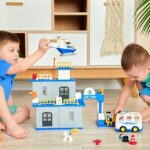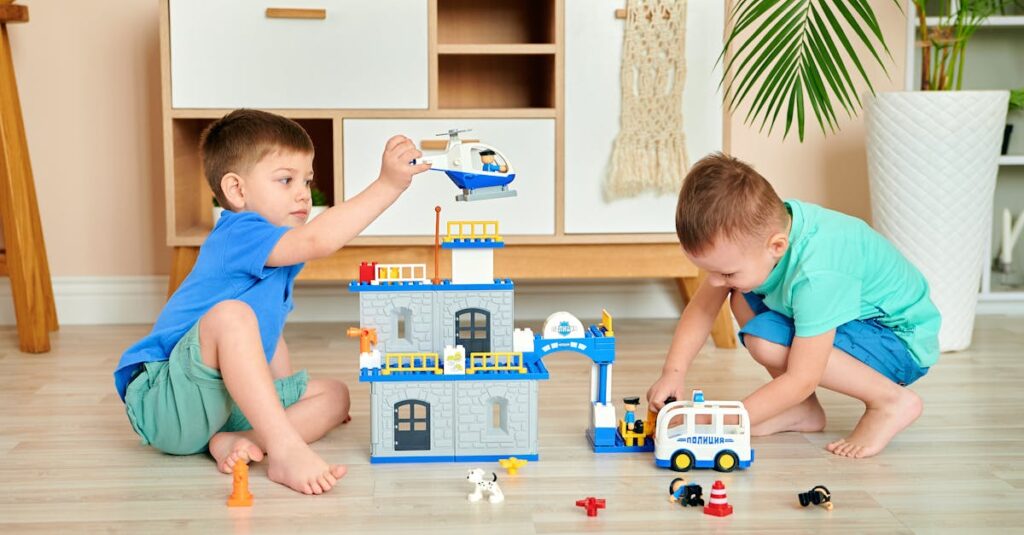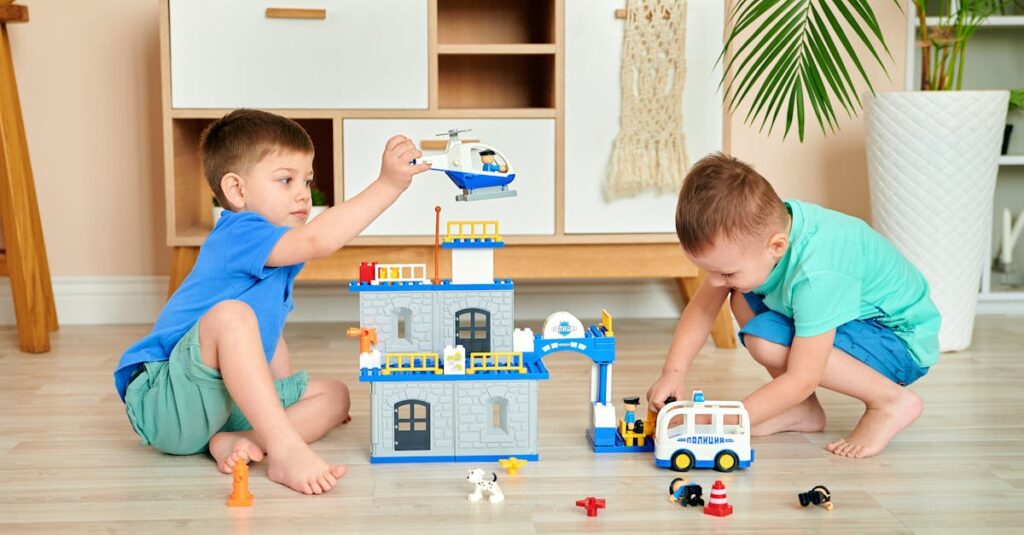In the wild world of parenting, two styles often take center stage: helicopter parenting and authoritative parenting. Picture a helicopter mom hovering over her child like a drone on a mission, ready to swoop in at the first sign of trouble. Now, imagine an authoritative parent, confidently guiding their child with a mix of warmth and structure, like a seasoned tour guide navigating through the jungle of adolescence.
While one style might seem like a safety net, the other fosters independence and resilience. Parents often find themselves caught in the crossfire, unsure of which approach will lead to the ultimate success. As they navigate this parenting maze, it’s crucial to understand the differences between these two styles. Buckle up—it’s time to explore how these contrasting methods impact children’s development and future success.
Table of Contents
ToggleOverview of Parenting Styles
Parents adopt various approaches that significantly influence their children’s development. Helicopter parenting involves excessive involvement and control, often characterized by constant monitoring and intervention. This style might stem from fear of failure or a desire to protect children from challenges. Alternatively, authoritative parenting emphasizes balanced support and guidance while fostering independence.
Children of helicopter parents may struggle with problem-solving skills due to over-reliance on parental assistance. They often experience increased anxiety when facing new situations, as they may not have learned to cope with adversity.
On the other hand, kids raised by authoritative parents typically develop confidence and self-discipline. These parents set clear expectations and maintain open lines of communication, promoting healthy emotional growth. Research indicates that children thrive under this approach, often showing improved social skills and academic performance.
Additionally, understanding the core differences between helicopter and authoritative parenting styles helps parents make informed choices. While helicopter parenting prioritizes safety and protection, authoritative parenting focuses on fostering resilience and independence.
Balancing these elements can lead to more effective parenting strategies that suit children’s individual needs. Recognizing these styles enables parents to adapt their approach for optimal child development.
Helicopter Parenting
Helicopter parenting describes a style characterized by excessive involvement in children’s lives. This approach prioritizes control and supervision, often leading parents to hover over their children in various situations.
Definition and Characteristics
Helicopter parenting involves parents closely monitoring their children’s activities and decisions. They often intervene at the slightest sign of difficulty. These parents tend to be overly protective, driven by fears about their child’s well-being or future success. They may micromanage their children’s schedules and relationships, restricting autonomy. This parenting style is marked by a lack of trust in children’s abilities to navigate challenges independently. Research indicates that such parents prioritize academic performance and safety above all.
Effects on Children
Children of helicopter parents face various challenges. Increased anxiety often arises from their parents’ over-involvement. Kids may struggle with decision-making skills, as they rely on parents for guidance. Independence typically suffers, leaving them ill-prepared to handle real-world situations. Studies show that children raised in this environment may experience lower self-esteem, as they do not learn to trust their own judgment. Development of problem-solving skills also declines, impacting academic and social performance.
Authoritative Parenting
Authoritative parenting represents a balanced approach, fostering independence while providing guidance. This style emphasizes warmth and support along with clear expectations.
Definition and Characteristics
Authoritative parenting combines responsiveness and high standards. Parents set firm guidelines while encouraging open dialogue. They promote autonomy, allowing children to make choices and learn from mistakes. This approach relies on mutual respect between parents and children. Parents using this style maintain high expectations for behavior and academics without resorting to punitive measures. Respecting individuality, they adapt their strategies to meet each child’s unique needs. Research shows that this parenting style enhances children’s emotional intelligence and problem-solving abilities, resulting in more equipped individuals for adult challenges.
Effects on Children
Children raised by authoritative parents often exhibit confidence in their abilities. These kids develop strong self-discipline, enhanced social skills, and improved emotional well-being. Open communication promotes healthy relationships, enabling children to seek support when needed. This parenting style positively correlates with academic success and peer relationships, as children feel secure in their knowledge and skills. Moreover, kids demonstrate resilience in the face of challenges, contributing to their overall mental health. Studies indicate that authoritative parenting can reduce anxiety levels and increase self-esteem, equipping children with essential tools for future endeavors.
Helicopter Parenting vs Authoritative Parenting
Helicopter parenting and authoritative parenting represent contrasting approaches to child-rearing. Helicopter parents often hover near their children, while authoritative parents promote independence within a structured environment.
Key Differences
Helicopter parents exhibit excessive involvement and control, driven by a desire to shield children from failure. They micromanage schedules and decisions, resulting in dependency and reduced problem-solving skills. In contrast, authoritative parents set clear expectations while nurturing autonomy. This style emphasizes open communication, enabling children to learn from mistakes. Research indicates that children raised by authoritative parents develop strong self-discipline and confidence, while those with helicopter parents may experience increased anxiety and hindered emotional development.
Similarities and Overlaps
Despite their differences, both parenting styles aim to support children’s well-being. Each approach emphasizes the importance of guidance and attention. Some helicopter parents may adopt authoritative techniques, seeking balance amidst fears of failure. This overlap suggests that understanding both styles helps parents adapt their methods according to specific situations. Both styles ultimately strive for children’s success, but the means of achieving it differ significantly.
Navigating the complexities of parenting styles can significantly shape a child’s development. Helicopter parenting may stem from a desire to protect but often leads to dependency and anxiety. On the other hand, authoritative parenting strikes a balance that fosters independence and resilience. By understanding these contrasting approaches, parents can make more informed choices that align with their children’s unique needs. Embracing the principles of authoritative parenting can cultivate a supportive environment where children thrive emotionally and socially. Ultimately, recognizing the impact of these parenting styles empowers parents to guide their children toward successful and fulfilling lives.













